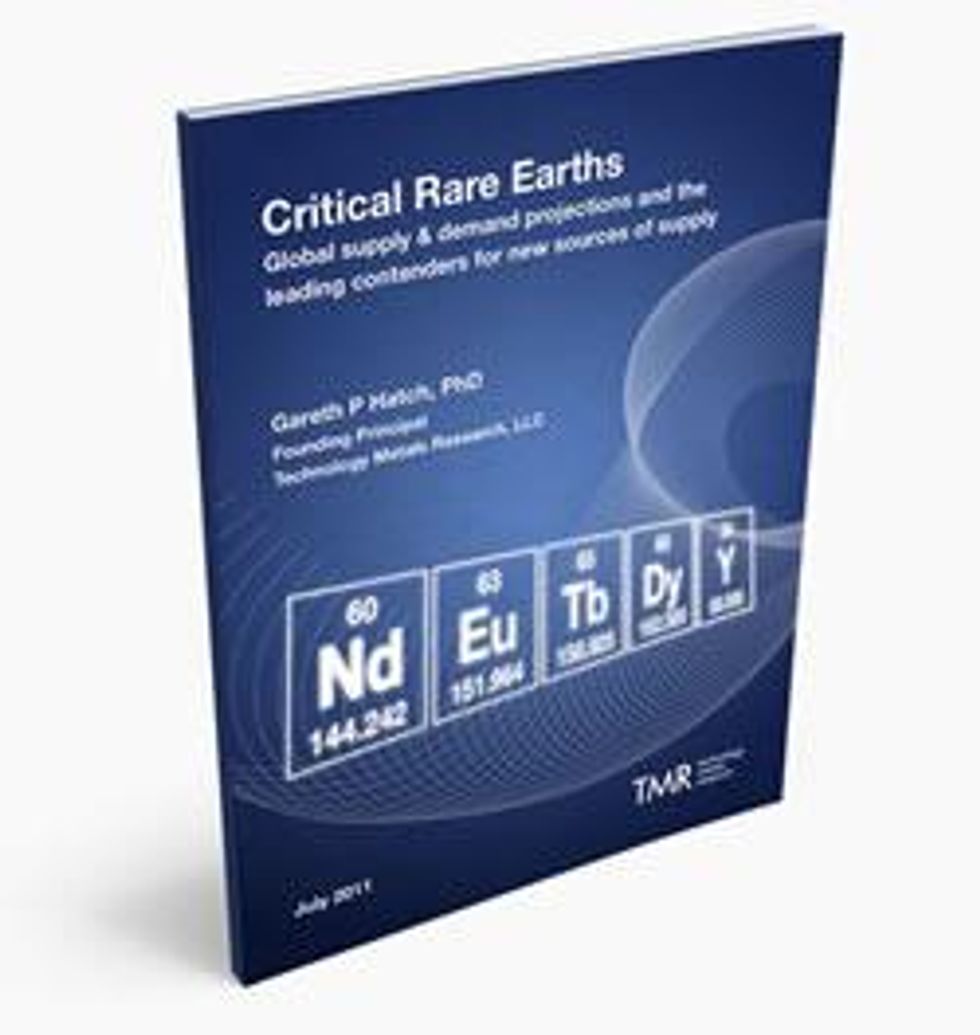Majority of Non-Chinese Rare Earth Projects Will Fail: TMR’s Jack Lifton
Technology Metals Research founder Jack Lifton stirs up debate with bleak outlook for rare earth miners outside of China.
By Robert Sullivan – Exclusive to Rare Earth Investing News
Rare earths consultancy Technology Metals Research (TMR), no stranger to controversy, has stirred up debate again after founder Jack Lifton told Reuters on November 1 that “the vast majority of non-Chinese rare earth metal ventures will fail.”
Lifton stated that of the 244 companies in the rare earths sector outside of China, less than 4 percent will prove profitable.
“The choke point for all the companies is the question of what they can do with the concentrated REM (rare earth metal) ore once it’s above ground. You can extract the rare earths together, but then you have to separate them…the world’s REM separation capacity is 99 percent Chinese and they have unused capacity,” Lifton said.
“Without separation capacity, all you have is a loss-making ore concentrate company,” he added.
His comments came a day after Australian miner Lynas Corp.(ASX:LYC) announced that its advanced materials plant being built in Kuantan, Malaysia had encountered “slight delays” and would not be coming online until early 2012.
Lynas had previously indicated that the plant, subject to regulatory approval from the Malaysian government, was scheduled to come online in 2011.
Molycorp leading the charge outside of China
Lifton’s pessimistic outlook will come as a disappointment to those who are hoping companies outside of China can fill the rare earths supply gap that has grown in the wake of China’s decision to tighten export and production quotas of rare earths.
China capped domestic production for 2011 at 93,800 tonnes of rare earth oxides (REO), while exports were limited to 30,184 tonnes, down 40 percent from just two years ago. They are scheduled to release their rare earths production and export quotas for 2012 later in November.
Optimists, on the other hand, will point to a recent announcement from Colorado-based Molycorp Inc. (NYSE:MCP), who revealed on October 20 that they will be opening a new processing plant in California months ahead of schedule.
The new plant is slated to come online in early 2012, and to coincide with the early start for the new facility, Molycorp also announced they would soon be restarting operations at their Mountain Pass mine in order to build stock for the plant.
HREEs critical to survival in REE sector
Despite many analysts’ belief that these latest developments from Molycorp bode well for the company, there has been some criticism of Molycorp’s Moutain Pass project, which is skewed towards light rare earth elements (LREE), as opposed to heavy rare earth elements (HREE) such as dysprosium, terbium, and yttrium, which fetch a much higher price.
Lifton falls into this camp, and believes that most companies that aren’t mining HREEs will simply not be able to turn a profit due to the expensive separation process.
“You don’t want the biggest deposits, you don’t want to have to process hundreds of tonnes at horrendous cost. You’re looking for the highest grade heavy rare earths and the least cost to recover them. It’s a question of economics,” Lifton said.
“In terms of investment, the best bet are the companies that will be producing the heavy rare earths that will be in deficit in the future,” he added.
Lifton divides opinion
Lifton’s TMR, which maintains an Advanced Rare-Earth Projects Index on their website, has indicated that of the nearly 250 companies outside of China in the rare earths sector, those with deposits that hold the highest concentration of HREEs include Lynas, Great Western Minerals Group Ltd.(TSXV:GWG), Quest Rare Minerals Ltd. (TSXV:QRM), Ucore Rare Metals Inc. (TSXV:UCU), and Tasman Metals Ltd. (TSXV:TSM)
Critics of TMR and its founder, however, are keen to point out that Lifton is an equity holder in Great Western Minerals, and is a consultant for both Ucore and Tasman.
Disclosure: I, Robert Sullivan, hold no direct investment interest in any company mentioned in this article.
